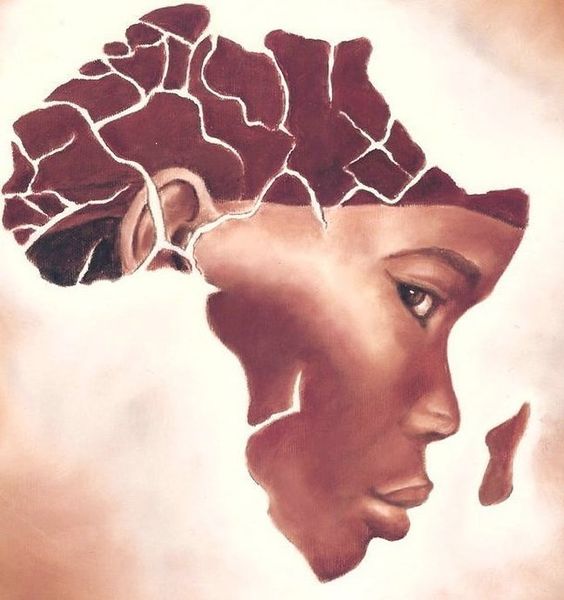We might all still be familiar with the phrase “Make America Great Again” that was popularized about a year ago. This was an agenda that was assertively pushed by current American President Donald Trump during his presidential campaign. In line with this phrase, I believe that African leaders too can work together with a policy that would “Make Africa First.” I’m convicted that the leaders must take on initiatives to identify responsibilities, and execute them and also avoid being reactionary to Western politics.
Most African nations, since their independence, have been nothing but receivers of assistance. It is of no dispute that some of these foreign assistance have shown immense stimulations to African economies – reducing aid dependency (such as improving access to sustainable agriculture, improved access to advance infrastructures, and youth entrepreneurship). However, we are still trapped in the hands of these western countries with the aids provided to us.
I firmly believe that instead of being overly dependent on foreign aids, African leaders should take up initiatives in scaling up policies that would enable them to build wealth among themselves through solid priorities that would, in turn, create jobs, economic ties that will bring in large-scale benefits in the long run, and regional economic integrations.
According to Africa Renewal Online, “Africa has the youngest population in the world,” and “youths account for 60% of all African unemployment.” This is, therefore, a big blow to the African economies, and it is only right that our leaders deviate from the foreign aid dependency and put measures in place that would not affect the futures of youths by leaving us in colossal debt we won’t be able to recover from.
To ensure that Africa comes first, I think the leaders need to come together to combine good governance, political stability, intra-Africa trade that would significantly increase economic growth, poverty reduction, employment, industrial development, an inflow of foreign direct investments, and better integration of the continent into the worldwide economy. By achieving these, the leaders can create sound fiscal and monetary policies among African states, as well we reducing corruption. They can also get involved with long-term investments in private sectors (the manufacturing and infrastructures industries), invest in agriculture which will serve as a gateway to addressing food insecurities, as well as creating jobs among the youths. Last but not least, improving quality education that would produce a skilled workforce among the youths. Doing these and freeing the continent from reliance on the West will serve as a gateway for more competitive industries, productivity, and development of local structures and facilities. Furthermore, improving regional economic integration initiatives among the 54 African states would serve as a critical factor in sustaining economic growth and maintaining long-term success for the entire continent.
A theory I have is, enacting a continental free trade among all African states would be in line with the priority of making “Africa first” and would be crucial to the development of Africa. Currently, many African states are engaged in more level of trade with other continents, than they are with one another. According to the World Trade Organization, “ “the level of trade among African nations covers 12% compared to 30% Asian Nations, 60% European nations, and 40% North American states.” If African governments continue with this method of establishing more trade relations with foreign nations, instead of boosting intra-African trades among themselves, there would be no effective means of decreasing the continent’s overly dependent reliance on the West for sustainable growth.
In order not to be controlled by the west in the long run, African leaders should focus on creating policies that would bring in the most significant return for the people of Africa. What will become of this vast continent when those that we rely on for assistance cut out their African-aid budgets? To ensure that the success of this continent is not in the hands of foreign nations, we should be responsible for holding onto the keys of our own developments. African leaders should be actively engaged in creating an economy that would boost the continent growth, increase regional integration, promote private sector competitions, and direct foreign investments.
Why do we continue to rely on the West for aid when our continent is a prime unexplored resource? We have one of the wealthiest soils for agricultural investments, natural resources and excellent trading possibilities that serve the interest of the West. So, why don’t we invest in the youth in our regions to ensure that our investments will be managed and infrastructures will be maintained? Simply put, once we have our own people to do these tasks, we do not have to rely on the west to bring in people who will take jobs away from our own. The higher the unemployment among the youth, the more vulnerable they are to the recruitment of a powerful terrorist organization and insurgencies. This, in turn, leads to most African nations in the continent running for aid because of the insurgencies mentioned above.
Moving away from being overly dependent on foreign aids requires brainpower and strategizing by our political leaders, but it comes with a great reward for the continent. Honestly, my point here is not to undermine the use of foreign aid, but to suggest strategies that our leaders can initiate to move away from foreign aid to trade and investments.
Authored by Valdemar Reeves
Featured Picture by Ciara McDonald


I recommend you get familiar with a book titled “Dead Aid”. It was written by a CAmbridge University Graduate and articulates why Aid in the first place is Africa’s biggest problem.
I look at China and see how they were successful in taking a little close to 800 million people out of poverty as early as 30 years; and it didn’t take foreign aid.
In Liberia, the first step our NEW Government took to solve some of Liberia’s problems was to seek Aid and loans. On a personal note, our reliance on aid and loans have made us (Africans) small minded. Our leader no longer want to think outside the box of aid and loans to find a lasting solution to Africa problems.